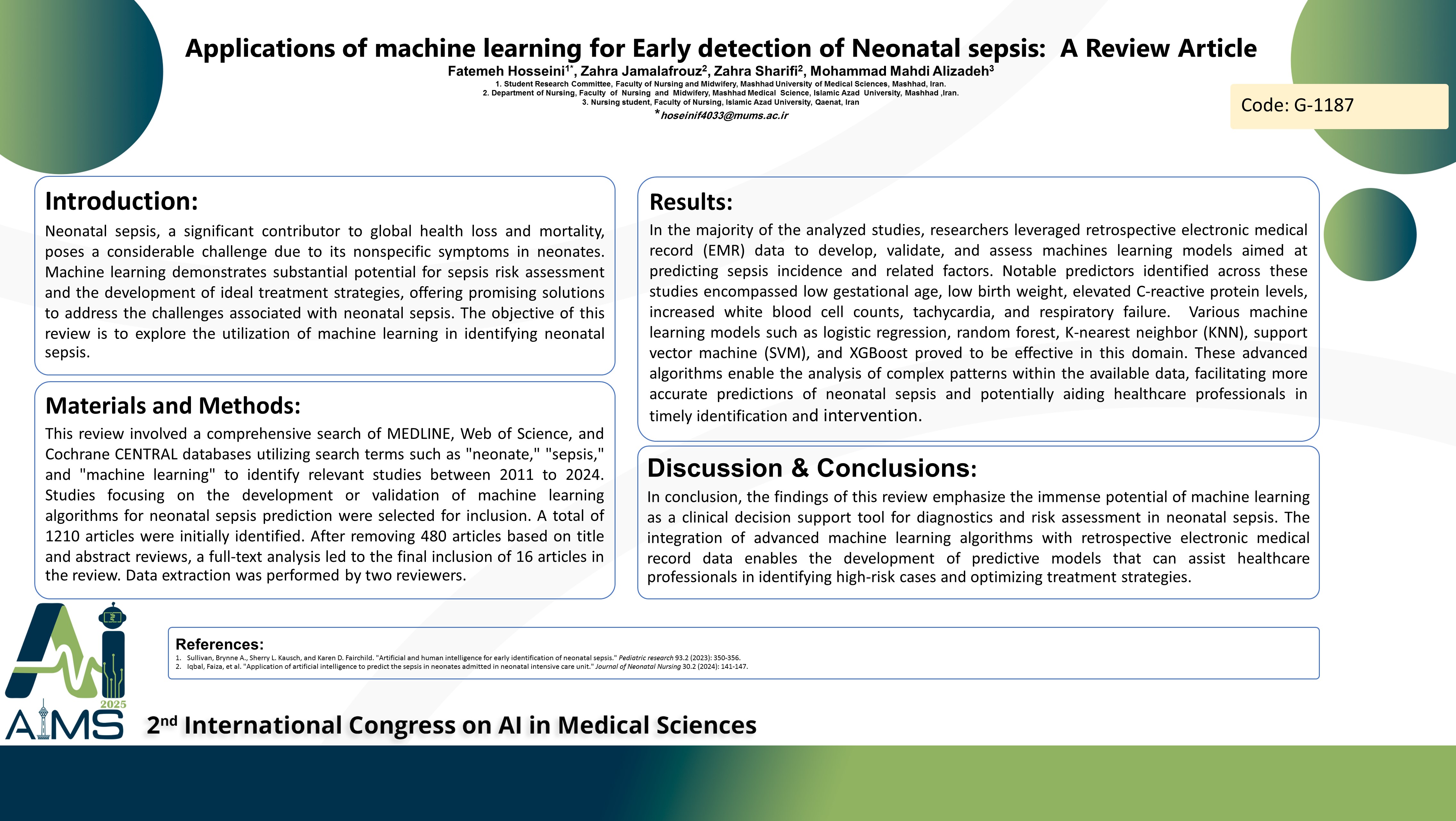applications of machine learning for Early detection of Neonatal sepsis: A Review Article
کد: G-1187
نویسندگان: Fatemeh Hosseini * ℗, Zahra Jamalafrouz, Zahra Sharifi, Mohammad Mahdi Alizadeh
زمان بندی: زمان بندی نشده!
برچسب: دستیار مجازی هوشمند
دانلود: دانلود پوستر
خلاصه مقاله:
خلاصه مقاله
Background and aims: Neonatal sepsis, a significant contributor to global health loss and mortality, poses a considerable challenge due to its nonspecific symptoms in neonates. Machine learning demonstrates substantial potential for sepsis risk assessment and the development of ideal treatment strategies, offering promising solutions to address the challenges associated with neonatal sepsis. The objective of this review is to explore the utilization of machine learning in identifying neonatal sepsis. Method: This review involved a comprehensive search of MEDLINE, Web of Science, and Cochrane CENTRAL databases utilizing search terms such as "neonate," "sepsis," and "machine learning" to identify relevant studies between 2011 to 2024. Studies focusing on the development or validation of machine learning algorithms for neonatal sepsis prediction were selected for inclusion. A total of 1210 articles were initially identified. After removing 480 articles based on title and abstract reviews, a full-text analysis led to the final inclusion of 16 articles in the review. Data extraction was performed by two reviewers. Results: In the majority of the analyzed studies, researchers leveraged retrospective electronic medical record (EMR) data to develop, validate, and assess machines learning models aimed at predicting sepsis incidence and related factors. Notable predictors identified across these studies encompassed low gestational age, low birth weight, elevated C-reactive protein levels, increased white blood cell counts, tachycardia, and respiratory failure. Various machine learning models such as logistic regression, random forest, K-nearest neighbor (KNN), support vector machine (SVM), and XGBoost proved to be effective in this domain. These advanced algorithms enable the analysis of complex patterns within the available data, facilitating more accurate predictions of neonatal sepsis and potentially aiding healthcare professionals in timely identification and intervention. Conclusion: In conclusion, the findings of this review emphasize the immense potential of machine learning as a clinical decision support tool for diagnostics and risk assessment in neonatal sepsis. The integration of advanced machine learning algorithms with retrospective electronic medical record data enables the development of predictive models that can assist healthcare professionals in identifying high-risk cases and optimizing treatment strategies.
کلمات کلیدی
Artificial Intelligence, Machine Learning, Neonatal
